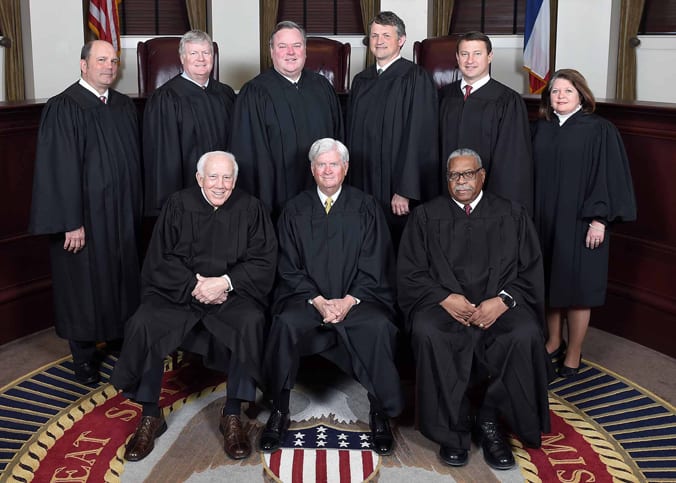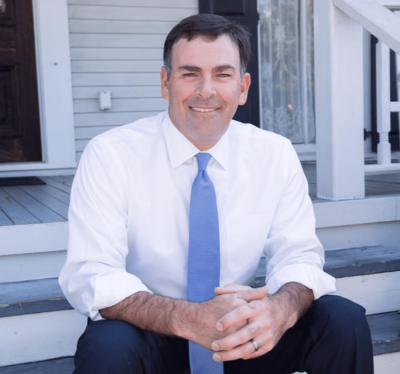
Last week the Mississippi Supreme Court heard arguments as to whether or not charter schools should receive funding from property taxes as other public schools do, according to the Clarion-Ledger. The goal of the lawsuit by the Southern Poverty Law Center is to in essence choke off the funding mechanism for these schools. The overwhelming majority of students served by reporting charter schools currently operating in Mississippi are African American (over 90%).
Specifically, the arguments revolved around whether or not communities shared the same responsibility of helping to fund the charter schools as they do the public schools.
 The Southern Poverty Law Center filed a lawsuit against the current funding provisions of the schools in 2016, stating that diverting property taxes to the charter schools came at the detriment of Jackson Public Schools.
The Southern Poverty Law Center filed a lawsuit against the current funding provisions of the schools in 2016, stating that diverting property taxes to the charter schools came at the detriment of Jackson Public Schools.
At the time of the filing, there were only two charter schools in Jackson. There are now four.
“A school operating outside the authority of the state board of education and the local school board cannot expect to receive public taxpayer money,” said Jody Owens, managing attorney for the SPLC’s Mississippi office at the time of the lawsuit filing. “The state constitution is clear on this matter.”
However, the counterargument is that wording of the law is ambiguous, and that the responsibility to provide is more specified to the provision for the students, as opposed to the schools themselves–considering the location of the charter schools; which played into the lower courts ruling last year that the charter schools are in fact entitled to the property tax funds as any other school district.
There are currently four charter schools in the Jackson area, all of which are comprised of students whose parents left the Jackson Public School District (largely from D & F rated schools) for a different approach to learning, feeling that their children were underserved students at JPS, currently ranked as an F rated school district in 2018.
Republic Schools, which operates Smilow Collegiate, Smilow Prep, and ReImagine Prep charter schools reports being comprised 94% African American children from the Jackson Public School District.
Parents chose the charter schools in their counties because of access to better choices and higher performance, according to an earlier discussion with Megan Cole of RePublic Schools, which has earned a C ranking in its third year of operation.
 “Last year at Reimagine Prep, principal Christina McDonald led scholars and teachers to have the highest accountability score of any open enrollment middle school in the city. Additionally, 52 percent of our seventh-grade scholars scored proficient or advanced on the MAAP math exam, surpassing the state average,” said Cole. “We are proud of our scholars’ growth as we recognize that many of our them come to us several years behind. Last year, 51 percent of fifth-grade scholars came to us performing in the bottom 25 percent in math and bottom 39 percent in reading, as measured by the NWEA MAP exams. The data suggest that the longer our scholars are with us, their more performance increases, which is not a trend in Jackson Public Schools.”
“Last year at Reimagine Prep, principal Christina McDonald led scholars and teachers to have the highest accountability score of any open enrollment middle school in the city. Additionally, 52 percent of our seventh-grade scholars scored proficient or advanced on the MAAP math exam, surpassing the state average,” said Cole. “We are proud of our scholars’ growth as we recognize that many of our them come to us several years behind. Last year, 51 percent of fifth-grade scholars came to us performing in the bottom 25 percent in math and bottom 39 percent in reading, as measured by the NWEA MAP exams. The data suggest that the longer our scholars are with us, their more performance increases, which is not a trend in Jackson Public Schools.”
Another argument against the taxpayer funding for the charter schools is the fact that charter schools are not operated by the district or the Mississippi Department of Education. However, charter schools are free and public schools, adhering to the same state testing requirements and benchmarks for advancement.
Of the other states that allow charter schools, Arizona, Arkansas, and California do not allocate property taxes to charter schools.
Should the SPLC lawsuit be successful, charter schools as they currently exist in Mississippi and the thousands of families they serve would be irrevocably impacted and children could be forced back into lower rated and chronically under performing schools.
Y’all Politics will continue to follow this story as it progresses.











